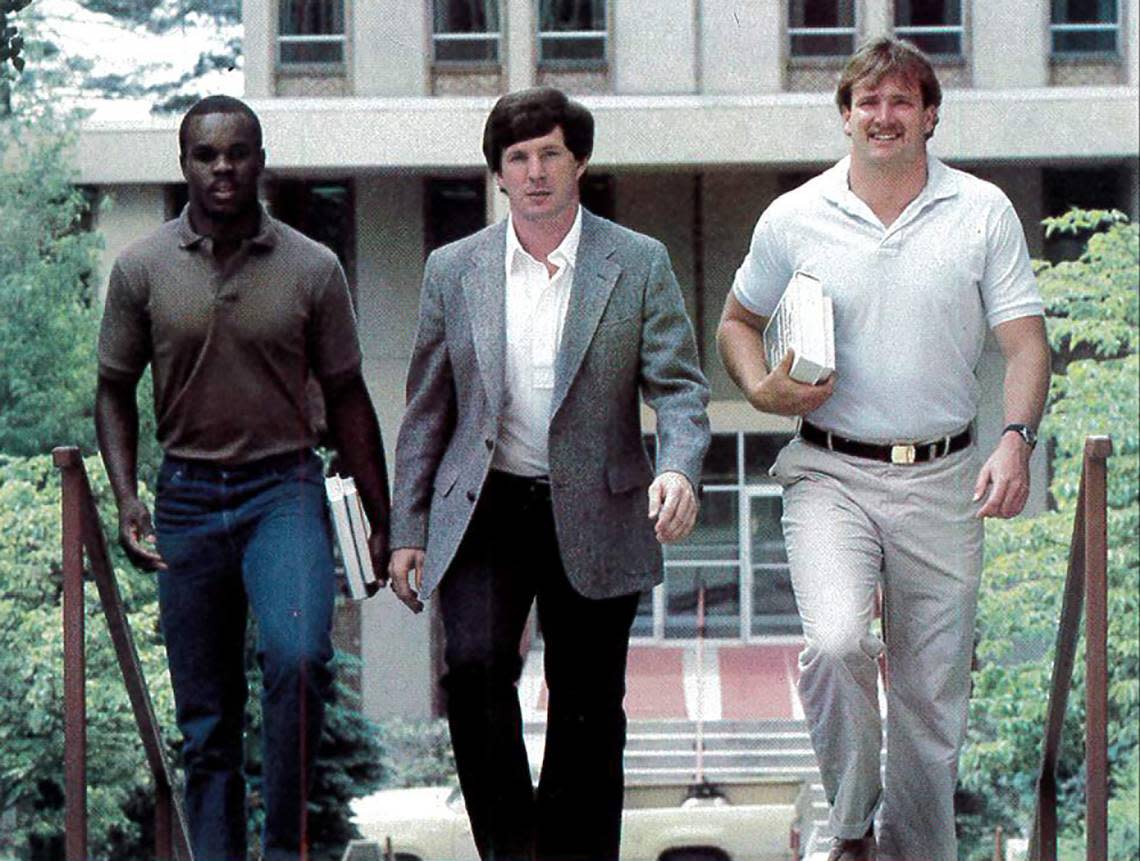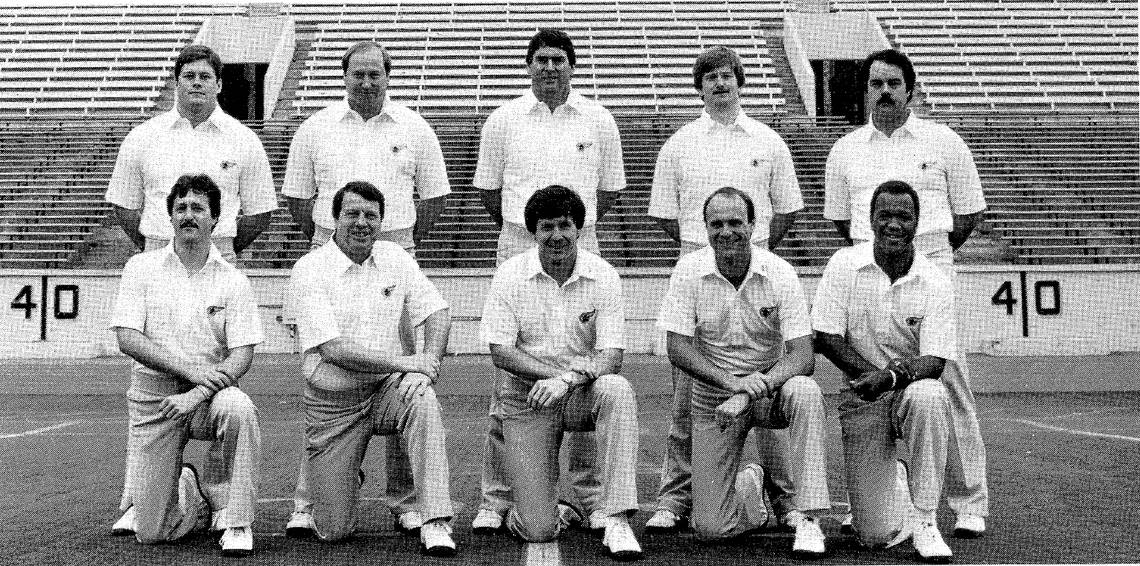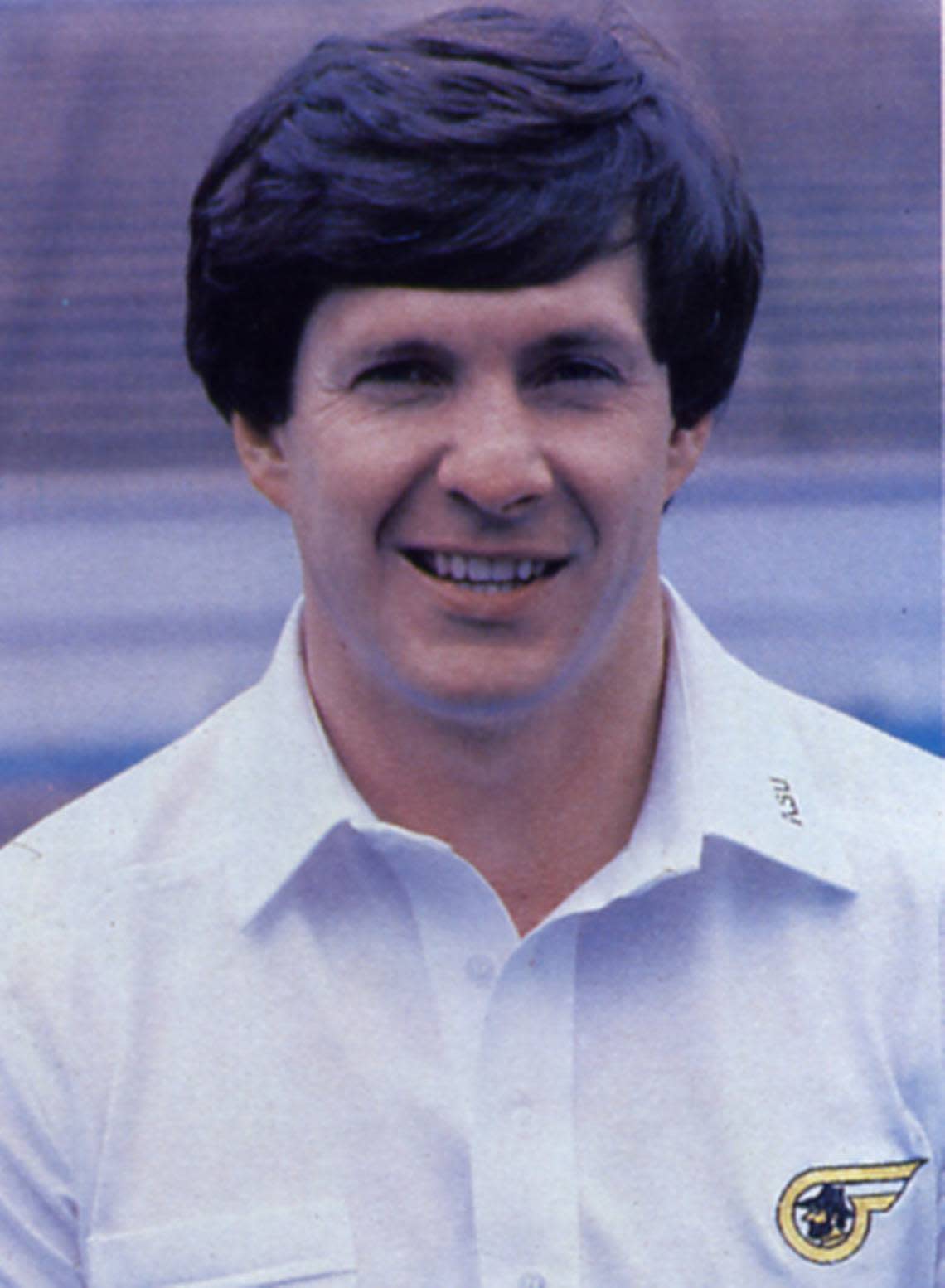How a year in Boone helped UNC football coach Mack Brown and App State program evolve
Mack Brown unhooked his wristwatch and placed it on the table in front of him during his first coaching staff meeting as Appalachian State’s head coach in 1983. The way his offensive line coach Mark McHale remembers it, that was Brown’s way of showing everyone they were on the clock.
McHale was the only holdover Brown kept from coach Mike Working’s previous staff at App State. And Brown wasted no time putting his own personal imprint on the program. McHale said early on Brown showed “CEO-type traits” with his organizational skills. And the watch?
“That was to indicate, ‘Hey, I’m not here to waste time, I’m on a schedule,’ ” McHale said. “We’re not here to just talk a lot. There’s gonna be segments to the meeting, I’m going to cover it and move on.”
Brown’s time at App State would prove to be on a timer, too. His first season as a head coach in 1983 would be his only season in Boone. He gave that up and his $38,500 salary to become the offensive coordinator at Oklahoma, which paid $125,000 at the time.
His goal was to be a Division I-A head coach, and he felt being with the Sooners would help him get there faster. Brown only spent a year at Oklahoma before he was a head coach at Tulane for three seasons before being hired for his first stint at Carolina.
Under different circumstances, Brown might not have ever left App State.

“I wanted to stay,” Brown said. “But I also knew that Oklahoma was one of the best programs in the country and that would be a great experience for me to go call plays and work with Barry Switzer and try to win a national championship, so I hated the day I left.”
Obviously, it worked out just fine. A Hall of Fame career later, Brown returns to App State for the first time in nearly 40 years on Saturday as North Carolina faces the Mountaineers at noon at Kidd Brewer Stadium.
App State officials are anticipating the biggest home crowd ever in the Tar Heels’ first visit in series history to Boone.
“The program has grown so much and it’s in such a better place than it was when I went there, and I’m so proud of them,” said Brown, who said he had a house there for 30 years. “They’re one of the best programs in the country, and they’re good at what they do. They’re proud, their crowds make a difference. Football’s really important there. And I’m just proud of who they’ve become.”
Sparky Woods believes Brown had a part in planting the seed for what App State became in football.
Woods served as offensive coordinator in ‘83 and became the head coach when Brown left for OU. Woods, who is currently on UNC’s staff as a senior advisor, said he carried out Brown’s plan in Boone during his five seasons as head coach.

“They had not won very much; I remember people kind of made fun of us a little bit on how to pronounce Appalachian,” Woods said. “And I can remember them saying, ‘Do y’all wear shoes up there?’ But I thought he did a great job of setting his own path to change the culture.”
There were simple steps like changing the Mountaineers helmet logo. The previous version of “Yosef the mountain man” had a cob pipe. Brown added stripes, which was very ‘80s like, Yosef lost the pipe, and was a younger, tougher looking version.
The coaching staff was limited during recruiting to two days when they could check out cars from the university fleet to go recruiting. McHale credited Brown for arranging complimentary cars from area dealerships in order to free the staff to go on their own.
Ron Cooper was just a graduate assistant coach on the staff, making his first foray into coaching. Cooper, who is now the head coach at Long Island University, said Brown established “a first-class way of doing things.”
“I’m pretty sure the way he ran it back in Appalachian State is the same way he runs it at every major program he’s been at,” Cooper said. “All the guys that he had coached in the big time and I think that in itself helped elevate the program.”

App State played Division I-AA, the predecessor to the Football Championship Subdivision, and had the budget constraints of a smaller program. Brown recalled being told he could only recruit 33 players from out of state, because the athletic department didn’t have money to fund more than that.
He also heard gripes about the training table before his arrival so he wanted to make a splash before their first game at Wake Forest.
“I told the kids we’re gonna do it right man, you’re gonna have steak,” Brown said. “The chef got sick and didn’t come in. We had hot dogs and hamburgers for pregame meal before we we drove down to Winston-Salem to play. I think we even stayed in our dorms and got on the bus and just drove down to play the next night.”
Brown and the Mountaineers still upset Wake Forest. It helped confirm what Brown had been preaching about the program’s potential.
“We got to where we expected to win and our players expected to win,” Woods said. “And I think that’s where they are now and where they’ve been for a long time.”
